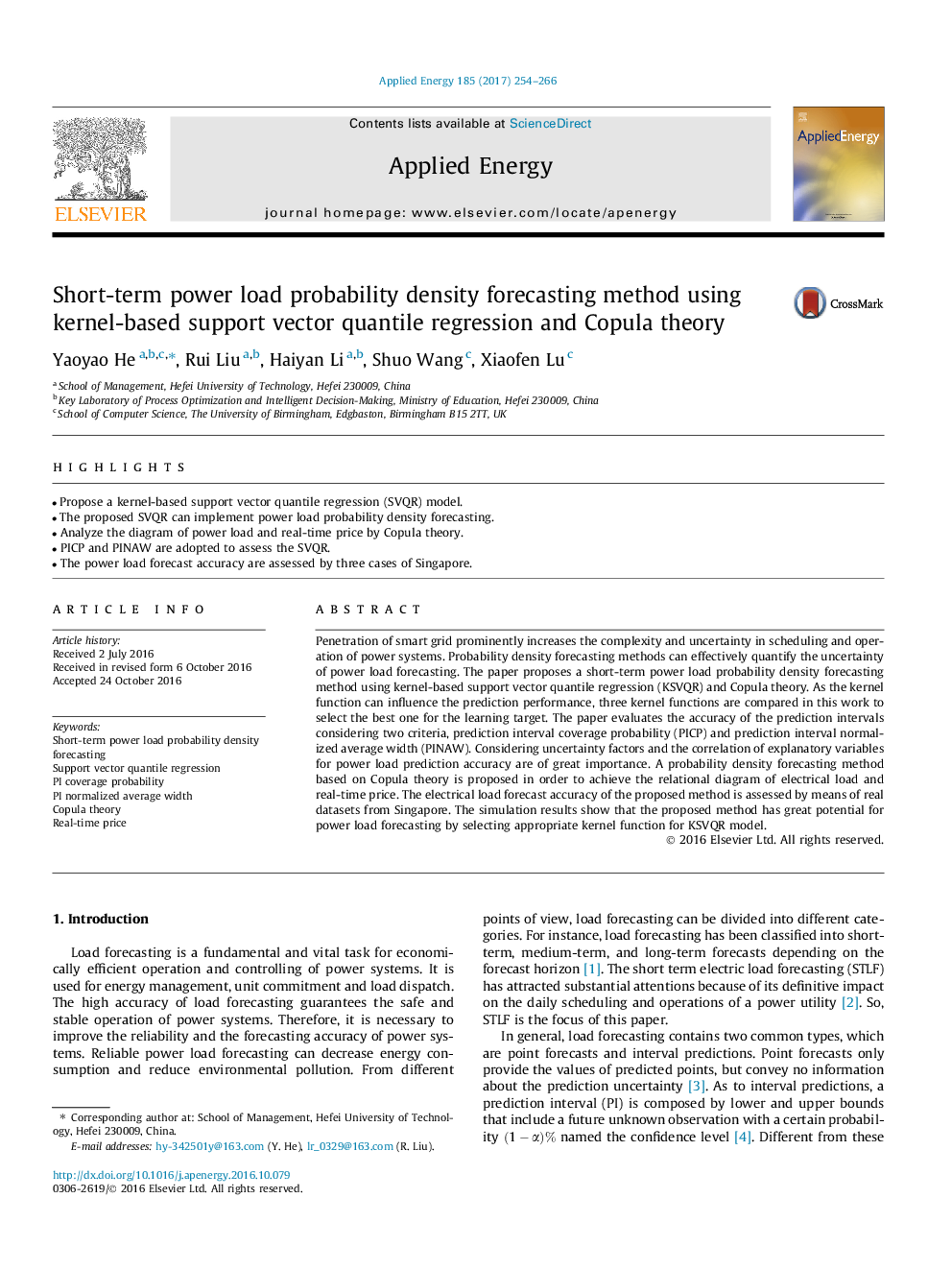| Article ID | Journal | Published Year | Pages | File Type |
|---|---|---|---|---|
| 4916973 | Applied Energy | 2017 | 13 Pages |
Abstract
Penetration of smart grid prominently increases the complexity and uncertainty in scheduling and operation of power systems. Probability density forecasting methods can effectively quantify the uncertainty of power load forecasting. The paper proposes a short-term power load probability density forecasting method using kernel-based support vector quantile regression (KSVQR) and Copula theory. As the kernel function can influence the prediction performance, three kernel functions are compared in this work to select the best one for the learning target. The paper evaluates the accuracy of the prediction intervals considering two criteria, prediction interval coverage probability (PICP) and prediction interval normalized average width (PINAW). Considering uncertainty factors and the correlation of explanatory variables for power load prediction accuracy are of great importance. A probability density forecasting method based on Copula theory is proposed in order to achieve the relational diagram of electrical load and real-time price. The electrical load forecast accuracy of the proposed method is assessed by means of real datasets from Singapore. The simulation results show that the proposed method has great potential for power load forecasting by selecting appropriate kernel function for KSVQR model.
Keywords
Related Topics
Physical Sciences and Engineering
Energy
Energy Engineering and Power Technology
Authors
Yaoyao He, Rui Liu, Haiyan Li, Shuo Wang, Xiaofen Lu,
